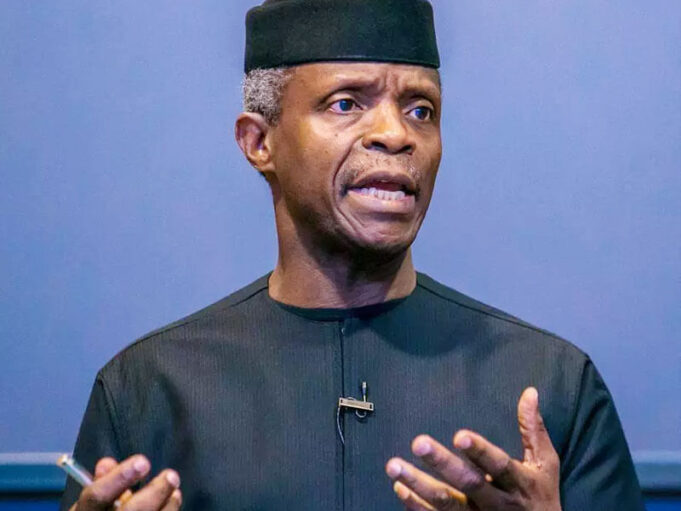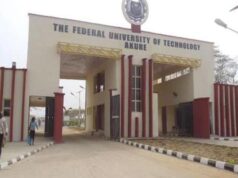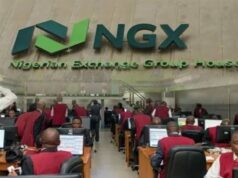The Vice President, Prof. Yemi Osinbajo, has revealed that as a lecturer at the Faculty of Law, University of Lagos he earned N620 monthly salary.
Osinbajo spoke at the 53rd Conference of the National Association of Law Teachers held at Bayero University Kano (Buk) on Tuesday.
He said: “A Law Teachers’ Conference is always a homecoming for me. I started teaching at the Faculty of Law, University of Lagos in November 1981, and for many years attending the Law Teachers’ Conference was always special.
“First, because it was the only Conference our university agreed to pay for us to attend, and that was a big deal since my salary was N620 a month. So, I am pleased to be here.”
After his graduation from the University of Lagos in 1978 and Nigerian Law School in 1979, Osinbajo proceeded to the London School of Economics for his Masters of Law in 1980.
On his return at age 23, the vice president began his teaching career at UNILAG in 1981. By 1997, he was made Professor of Law and in 1999 became the Head of Department of Public Law.
The vice president said three law teachers work closely with him in the office. “Dr. Jumoke Oduwole, the Special Adviser to the President on Ease of Doing Business, who used to teach Law of Contract, Commercial Law and International Economic Law at the University of Lagos and Dr. Balkisu Saidu, Senior Special Assistant to the President on Legal, Research & Compliance Matters, who was Associate Professor of Law at Usman Dan Fodio University, Sokoto where she taught Jurisprudence, Nigerian Legal System and Islamic Family Law. Though not here with me today, my Chief of Staff, who is the Deputy Chief of Staff to the President Mr. Rahman Ade Ipaye is also a former law teacher,” he said.
Osinbajo said without social justice, legal justice is ultimately unattainable.
The vice president also challenged law teachers on shaping the conversations around democracy.
According to him, “The degree to which citizens are in possession of their social and economic rights has a direct impact on the degree of their access to legal services and thence to justice. Our concern as teachers and practitioners of the law therefore must extend beyond the courtroom, beyond the precincts of our legal institutions to the social reality in which these structures exist.
“As teachers and practitioners of the legal craft, we should not be afraid of tackling the big conceptual and philosophical questions around the meaning of democracy, but take the lead in shaping the conversations that drive policy and legislation around these issues and in so doing, preserve public confidence in our vocation and in our capacity as a people to self-correct and self-govern.”
- Court halts Nigeria Air’s take-off as Airline Operators sue FG - November 15, 2022
- Bizmen slam N407.8m suit on Union Bank - July 1, 2022
- N25.7bn fraud: Appeal Court affirms Atuche, Anyanwu’s conviction - June 23, 2022










